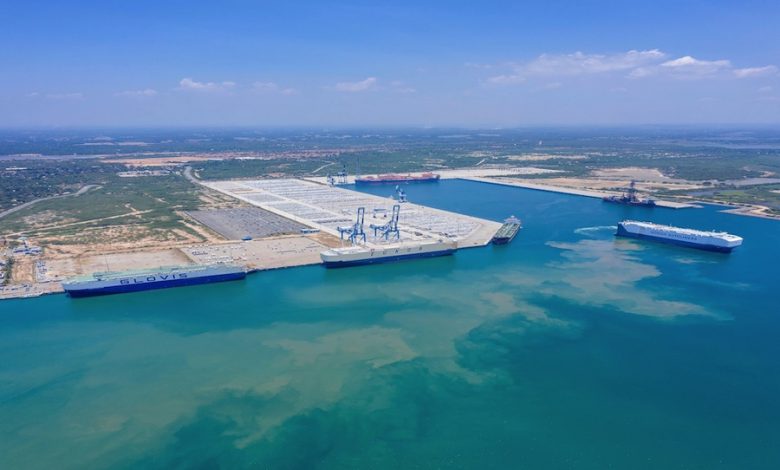Sri Lanka latest nation to push back from China’s Belt Road embrace

Another country is trying to push back from the embrace of China’s Belt Road Initiative (BRI).
Citing national interest, Sri Lanka’s new government led by President Gotabaya Rajapaksa has made clear it is keen to cancel the previous regime’s move to lease the southern port of Hambantota to state-backed China Merchants.
A number of other port plans around the world where Chinese investment is involved have faced pushback in recent years with governments changing, notably a massive project on Tanzania’s Indian Ocean coastline.
Two years ago China Merchants Port Holdings Co concluded a $1.1 bn 99-year lease to develop Hambantota, a move hailed at the time as helping transform the island into a major maritime hub.
“We would like them to give it back,” Ajith Nivard Cabraal, a former central bank governor and an economic adviser to prime minister Mahinda Rajapaksa, told Bloomberg in an interview this week. “The ideal situation would be to go back to status quo. We pay back the loan in due course in the way that we had originally agreed without any disturbance at all.”
China is unlikely to quit this strategically important port anytime soon however.
“China-Sri Lanka cooperation, including the Hambantota port project, are built on the basis of equality and consultation,” China’s Foreign Ministry said in a statement sent to Bloomberg. “China looks forward to working with Sri Lanka to make Hambantota a new shipping hub in the Indian Ocean and developing the local economy.”
Other countries to have curtailed Chinese BRI infrastructure plans recently include Malaysia and Myanmar.

These stories are getting quite common with countries in Asia and Africa pulling out of deals or wanting to modify previous deals with China. Long-term leases and/or large loans, in the name of national development interests, surround the control of strategic resources including ports and mineral deposits seem to be making countries uneasy. There seem to be the perception that these deals do not benefit countries as they do China. Why the new insights? Why the change of heart? Why the push back against China’s apparent bid for global hegemony? Why countries do not make deals that benefit them? Is this China’s fault?
The consequences for those who have gone ahead with such alliances will not be known for years to come. But there is always history…the opportunity to look to the past for lessons. A country where its major resources are controlled by foreign interests has never prospered. For example, how is Africa, the richest continent in resources, has some of the poorest countries in the world? Do we blame corrupt, unethical leaders, or do we blame shortsightedness, lack of experience, inability of leaders of these poor countries to stand against the ‘romance’ or large countries more experienced in the ways of global politics? Are they inept, blinded by immediate gratification, the provision of a few thousand jobs in the next few years and infrastructure that might hold up for 20 years. Why do countries such as China have national development plans and goals well into the future and poor countries can only manage 10, maybe 30 or 50 year plans at the most, attaching themselves to international strategies, United Nations indices, rather than charting more ambitious paths? Can’t they see beyond their own life span of a messy 70 or maybe 90 years (very few go to 100) when making decisions that will affect generations to come?
There is history. British and US imperialism did not serve such countries, what lessons have been learnt that should be applied in these alliances with China? Like they did and continue to do, the British, US and elsewhere are serving their own interests, we should not expect any less from China, but what are these countries doing with their experiences to ensure they actually benefit in the long run?